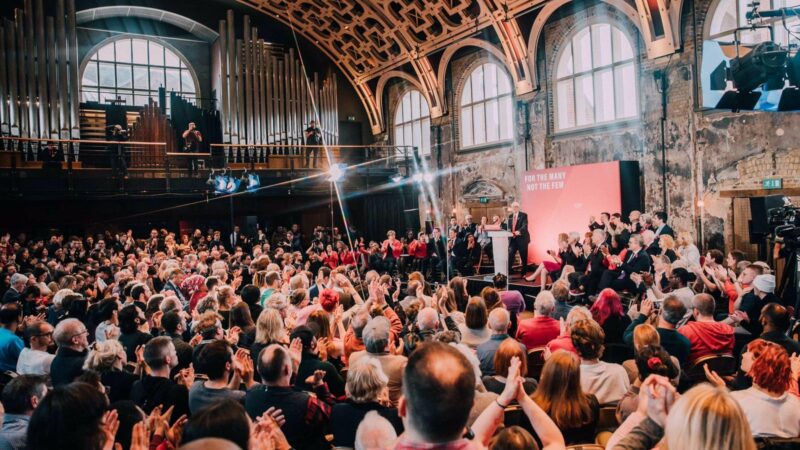
In early January, Labour’s national executive committee (NEC) will meet to discuss and agree the process for selecting the next leader and deputy leader.
I joined the NEC in September 2014. Since then, we have already had two general elections, the EU referendum, the Scottish independence referendum, two leadership elections, a deputy leadership election, two Scottish leadership elections and a Welsh leadership election, as well as annual local government elections.
The process for electing a leader has varied. A new system was introduced under Ed Miliband, which gave votes to registered and affiliated supporters. The idea behind this change was to allow ordinary Labour voters to have a say in who our leader should be.
Registered supporters made a huge impact on the outcome of both the 2015 and 2016 leadership elections. This impact was unexpected by some of the NEC members who drafted the original rules.
When the NEC agreed the fee of £3 in 2015, only around 10,000 people had signed up to be a registered supporter. It was agreed that members of the NEC should be part of an oversight panel to check whether all these supporters met Labour’s aims and values.
It’s fair to say that we had no idea how many people would register and some of the logistical challenges this would bring. For example, all members and supporters need to be on the electoral roll. When tens of thousands of people started registering, it put a huge drain on staff resources. A low point for me was when someone successfully registered their per cat.
The oversight panels were controversial, with new members and supporters claiming they had been “purged”. The complaints made about the process in the press and on social media often differed to the reality: people would claim they were banned for something minor, but once you dug into it there was often a more serious complaint behind their ban. Sadly, though, some complaints did warrant looking into again – and at the time there was no appeal process, which caused a lot of anger and frustration.
There still does need to be a mechanism for ensuring people joining or registering support meet the eligibility requirements. It will be interesting to see what process is recommended for undertaking this task for the 2020 leadership election.
Back in 2015, members and supporters of other political parties were bragging about how they had successfully signed up as registered supporters with the intention of subverting the process. Right-wing blogs were publishing guides online about how to do this. While it was easy to spot high-profile cases, it was hard to prevent this from taking place.
This was part of the rationale behind the increase of fees for registered supporters in 2016, when we agreed that they should pay £25 rather than £3. This didn’t seem to deter genuine supporters from registering, with almost twice as many people registering compared to the previous year. It also raised millions of pounds for future election campaigns.
Some felt that the £25 fee for registered supporters was a bit steep. In the Scottish leadership election, the fee was reduced to £12. I would expect the fee for registered supporters in the 2020 leadership election to be somewhere between £12 and £25.
It will be interesting to see if any of the leadership candidates will have a mass appeal beyond the current party membership to inspire tens of thousands – or even hundreds of thousands – to join or sign up to vote.
Registered supporters have made a big impact in recent elections but many have argued in favour of abolishing them altogether. This isn’t an option for the 2020 contest as scrapping registered supporters would require a rule change at conference. The debate about registered supporters will continue within the party, but as we try to build as mass movement it is good to see new supporters get involved and previous supporters rejoin. And Labour would certainly benefit from the membership and supporter fees as we prepare for crucial council elections next year.




More from LabourList
SPONSORED: ‘Industrial hemp and the challenge of turning Labour’s priorities into practice’
‘A day is a long time in politics, so we need ‘action this day’’
Strong support for child social media ban among Labour members, poll reveals